I make a lot of jerky (both beef and venison). Like everybody, Im always searching for the best jerky recipe or pre-mixed seasoning package so Im always trying new products. Over the weekend I tried a new brand of jerky seasoning from Frisco Spices out of Nebraska.
http://www.friscospices.com/ Im trying their Hell?s Creek Jerky spices to make 25 pounds of venison jerky.
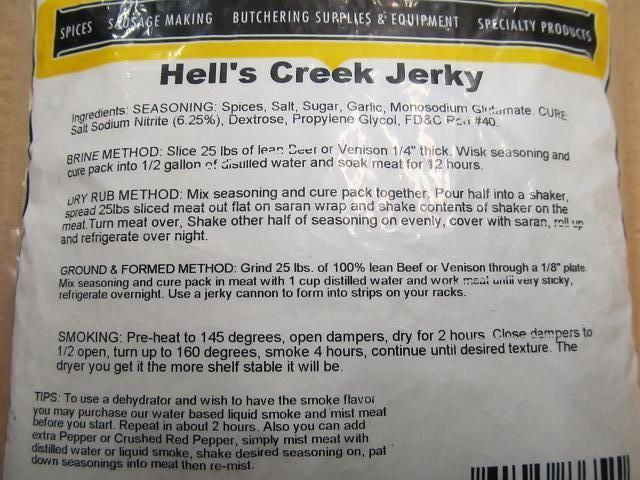
I always freeze my venison trim in gallon sized Ziploc Freezer bags and thaw it a couple days in advance of a jerky making weekend.
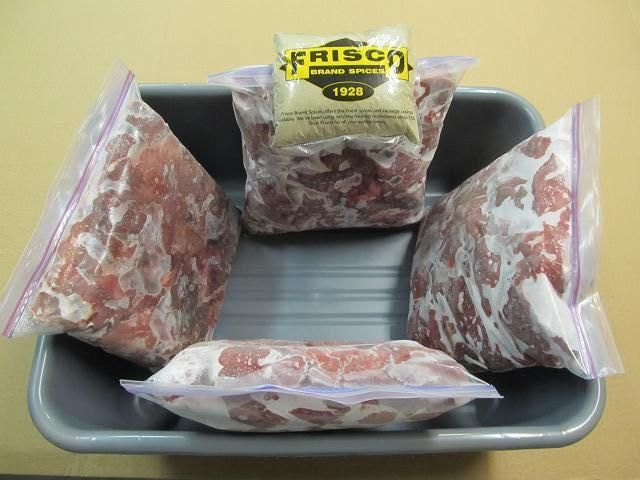
Once thawed (but still stiff with ice crystals) I grind it first through a 3/8 plate
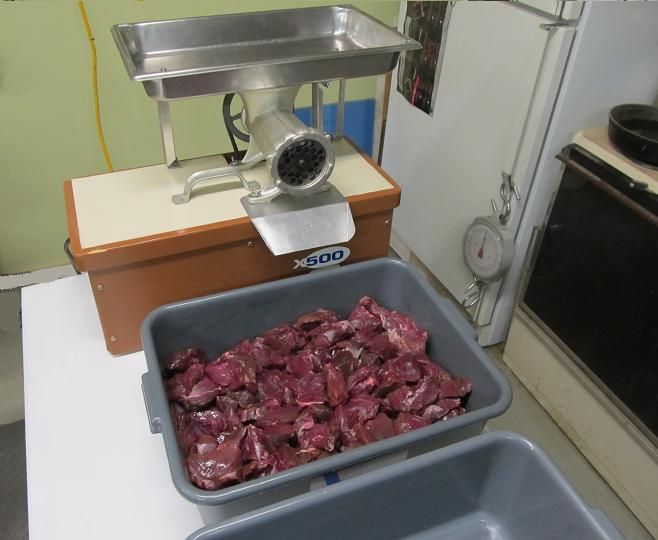
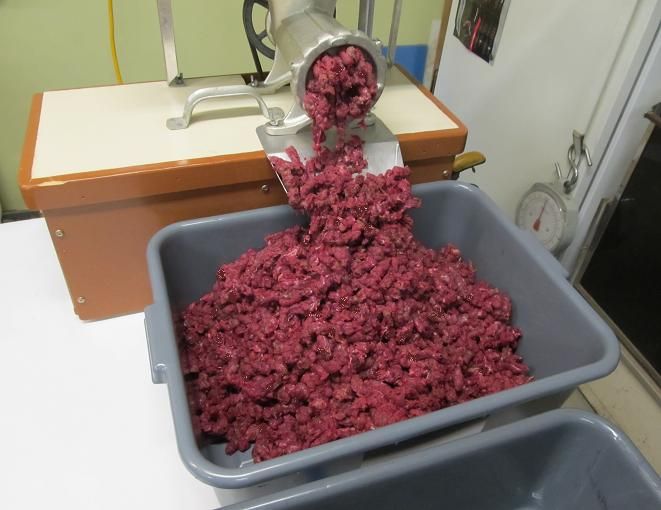
After the first grind I mix the seasoning with water. Trying to get an even distribution because using the seasoning dry never works and you end up with a spotty mixture where some of the meat is over seasoned and some is under seasoned.
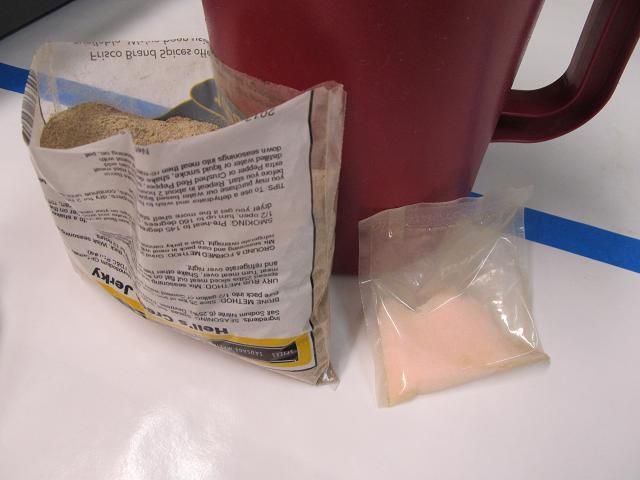
The packet says to use 1 cup of water but for this volume of spices I use 2 cups to get the best distribution. The pink packet is a sodium nitrate/salt mix that you need to stave off botulism.
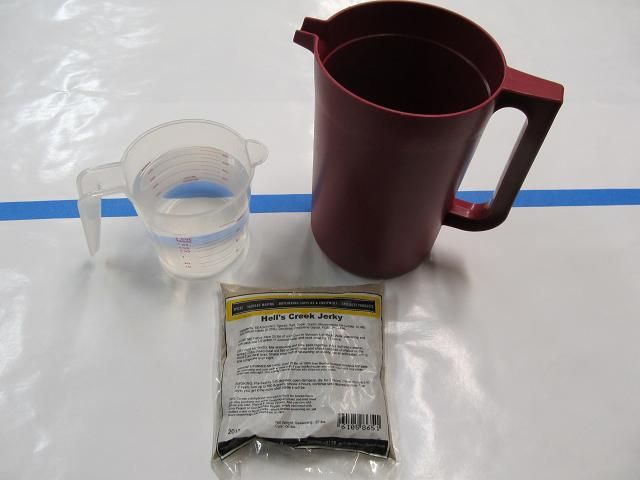
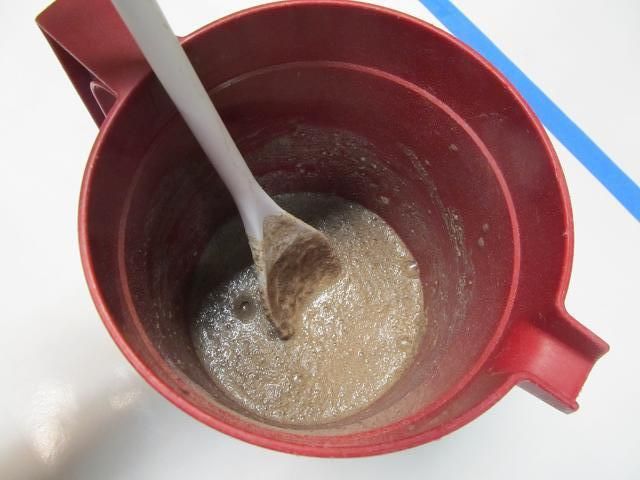
The water and spices and cure are then poured over the meat.
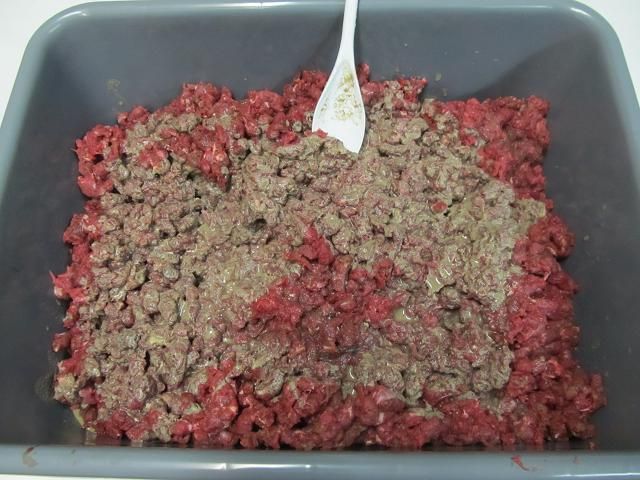
Then (wearing rubber gloves) I mix the meat by hand until I cant feel my hands any more and my fingers start to ach from the cold.
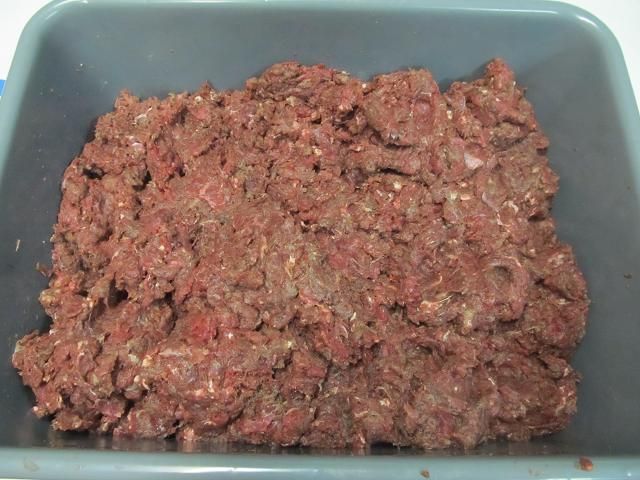
Then I switch my grinder to the 1/8 inch plate.
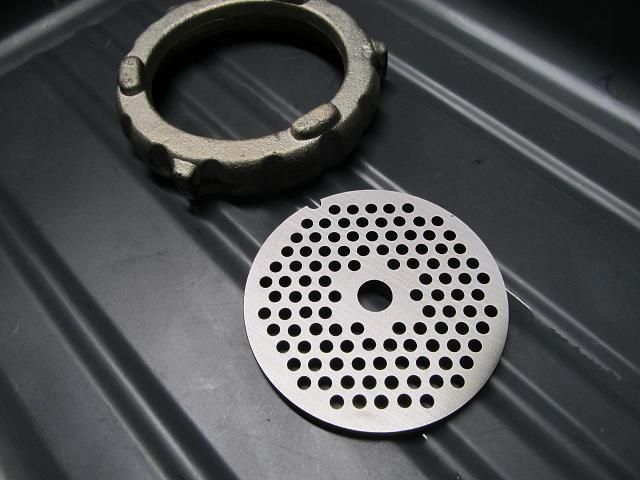
And grind the meat a 2nd time. This improves the texture and more thoroughly mixes the spices with the meat ensuring consistency and it makes sure the cure contacts all the meat.
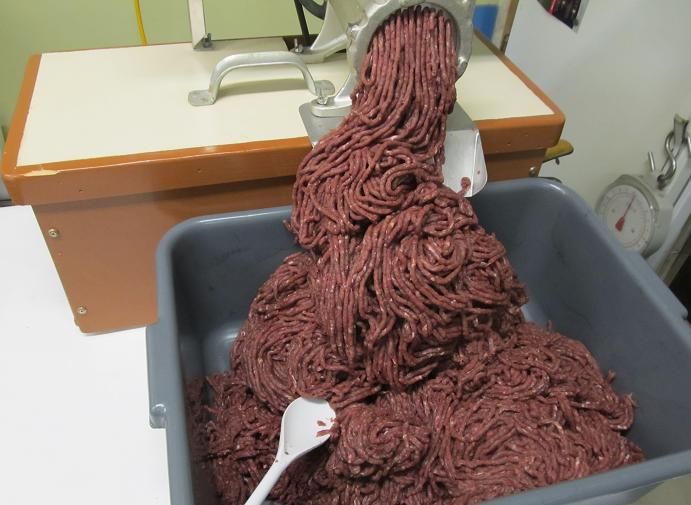
Then the meat is punched down tightly to remove air pockets and then covered with plastic wrap.

Then the covered meat sits in the cooler over night. This allows the sodium nitrate cure do its magic to ensure all the meat is cured so it is safe to consume because the jerky is not cooked at high temps but rather slowly dried at temps no higher than 165F.
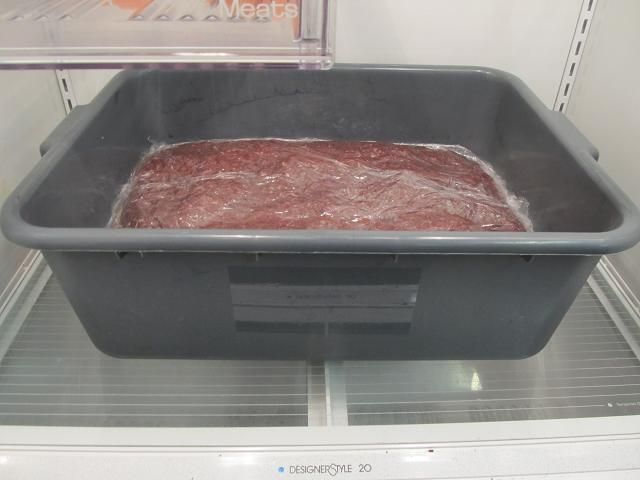
Then its time to do the dishes. I don?t delay because the salt in the second grind will raise holy hell with the steel parts and knives.
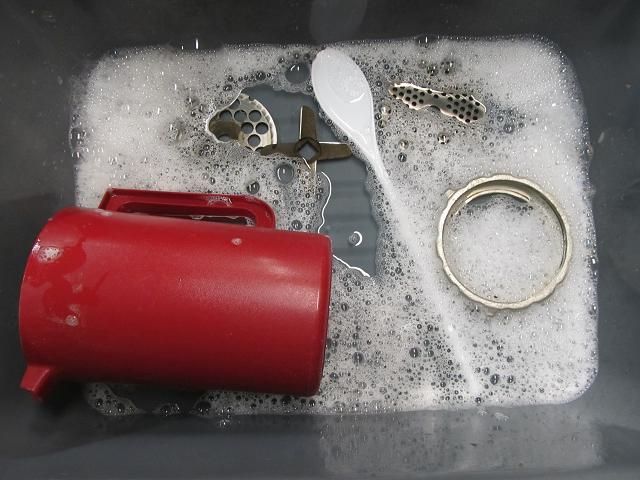
When dried, I always spray down my blades with a food grade oil to keep them from rusting. Ive had this set of blades for more than 20 years.
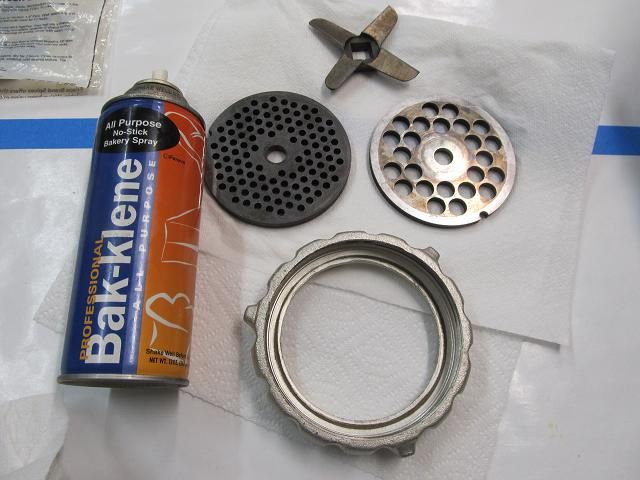
I wrap the blades in paper towel and store them in Ziploc bags (to keep them from getting dulled by banging into the other blades) and then I store my blades in the freezer where the humidity is very low.
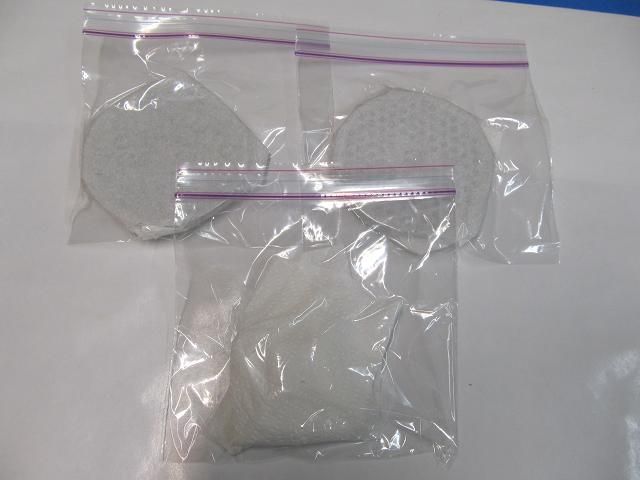
The next morning I use a jerky cannon to make strips right on the drying racks.

I always wipe down the clean racks with non-stick cooking spray that I spray onto a paper towel. I don?t like to spray directly onto the racks because it?s a mess and you get oil lines on the dried product that looks bad.
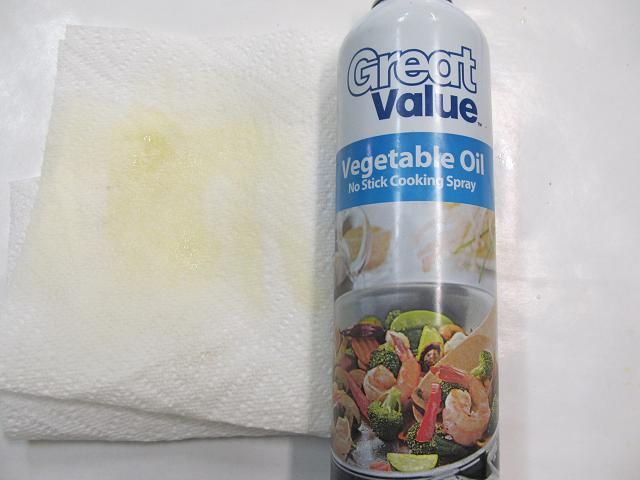
Since some in my family like hotter jerky I sprinkle a few of the racks with crushed red pepper flakes while the meat is still moist and tacky. I put on twicw as much as it needs since half of it will fall off during drying, cutting and vacumm sealing.

My dehydrator is a home made version that allows me to make up to 30 pounds at one time. The heat comes from two electric hot plates that produce 1000 watts each. It is built of wood and lined with metal (aluminum). In order to move it around I made it in two halves. One half is the heater and fan box. There is a screen (filter) separating the two chambers.
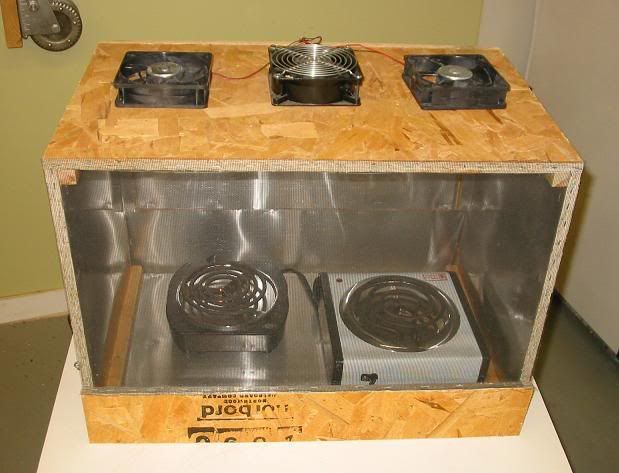
The other half is the dehydrator box with supports for ten drying racks. It is also lined with metal (aluminum).
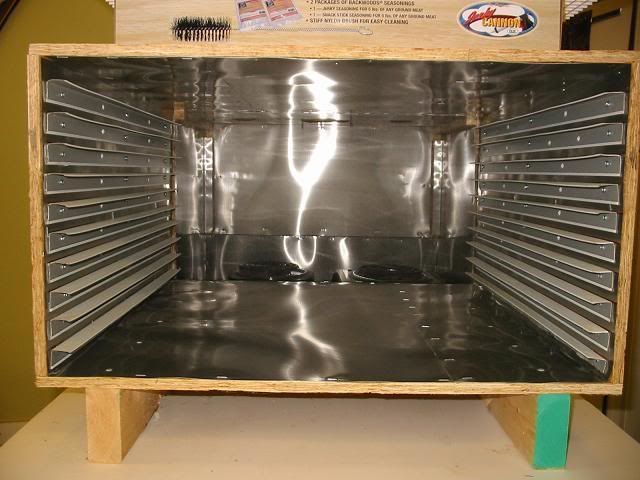
Then the racks spend the next 8 hours in the dehydrator. I start it out at 140 and slowly raise the temp to 165F.
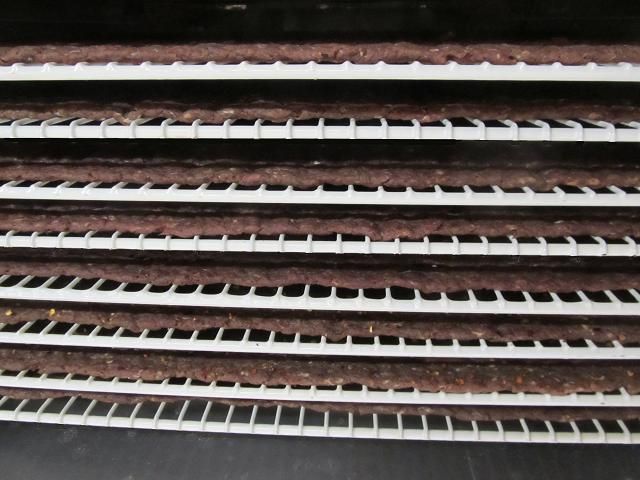
During the drying process I rotate the racks back to front as well as top to bottom to make sure everything drays evenly.
Fast forward 8 hours and its finished.
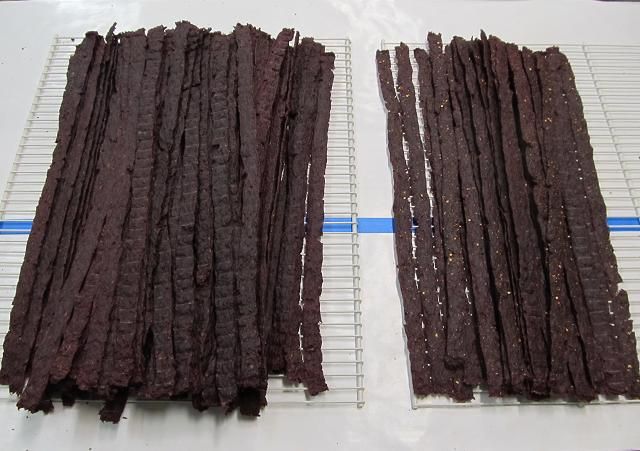
The strips are cut to length and vacuum sealed
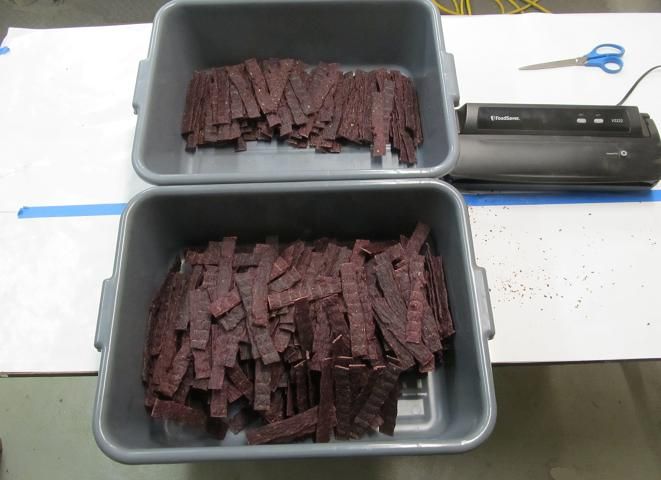
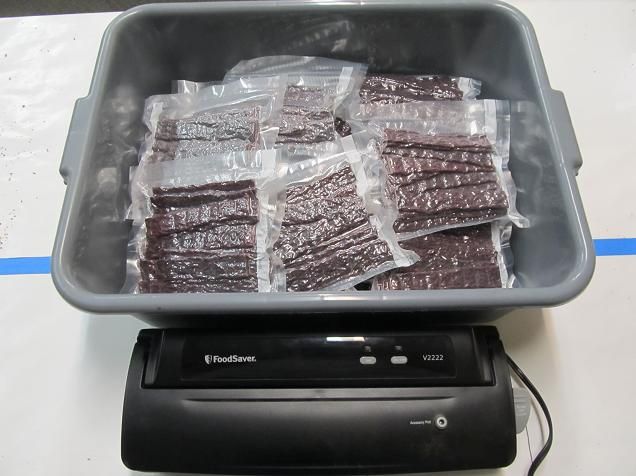
Im very pleased with the flavor. Its got a late heat that hits the back of the tongue. Now I need to make some smoked summer with crumbled cheese and Jalape?o.